- Learning time
- 40 minutes
- First play time
- 180 minutes
Agricola
Designed by: Uwe Rosenberg
Agricola is all about farming – ploughing, seeding, harvesting, cattle, sheep, pigs, and growing your farm (and your family) as much as you can. At the same time, though, you need to feed your family as it grows. It’s finding a way to do both successfully that is key to winning the game.
Each player starts with a farm and two family members, and in the centre of the table there is a board with available actions – on your turn, you send your family member to take an action (if it hasn’t been claimed already), and when everyone has exhausted their family members, they return home to the farm ready for the next round. The actions are simple at first – plough a field, chop some wood – but they grow more powerful as the game goes on, so player order is important, and taking the position of first-to-play is an available action too. You can use the resources you gather – wood, stone, reed – to improve your farmhouse or construct things: like an oven, which will be exceedingly helpful when it comes to feeding.
What you are each trying to do, then, is develop your farm, either through fields or pastures that contain animals – preferably both. However at certain points in the game – shown on the central board – there are Harvests, and at this point fields will yield their crops, animals will breed, and your family demand their meal. If you can’t feed them, you have to go Begging, which costs you points at the end of the game. Your family can eat crops and also animals – but only if you have something to cook the meat in.
There are also a couple of decks of cards (Occupations and Minor Improvements) with the game. You can play without them with younger players, or perhaps just one deck. The game will still function. Each player starts with seven of each, and the cards give you extra variation and strategic options on your turn.
At the end of the final round players score points for their animals and crops, family members and farmhouses/buildings. Note that there is also an Agricola: Family Edition which simplifies a number of things, not least the scoring system, and halves the game’s playtime. It’s less nuanced and intricate, but rather easier to learn and teach.
The guru's verdict
-
Take That!
Take That!
Agricola is first and foremost about developing your own farm as best you can. But once you are familiar with it it's possible to spot other peoples strategies and make blocking moves. Grabbing first player is also key, especially in the later stages of the game.
-
Fidget Factor!
Fidget Factor!
Once you are familiar with the game, not much.
-
Brain Burn!
Brain Burn!
Choices can occasionally be tricky, if your Plan A is scuppered by somebody getting to an action before you. However, despite it's length and complexity, Agricola is not a demanding game to learn or teach, as the basic premise and rules are out there in front of you - send your family to work, develop your farm, but don't forget you have to feed everyone at harvest time!
-
Again Again!
Again Again!
The is huge variation in Agricola because the cards will always come out differently and inform or influence strategies. But at the same time it's not a rule-heavy behemoth.

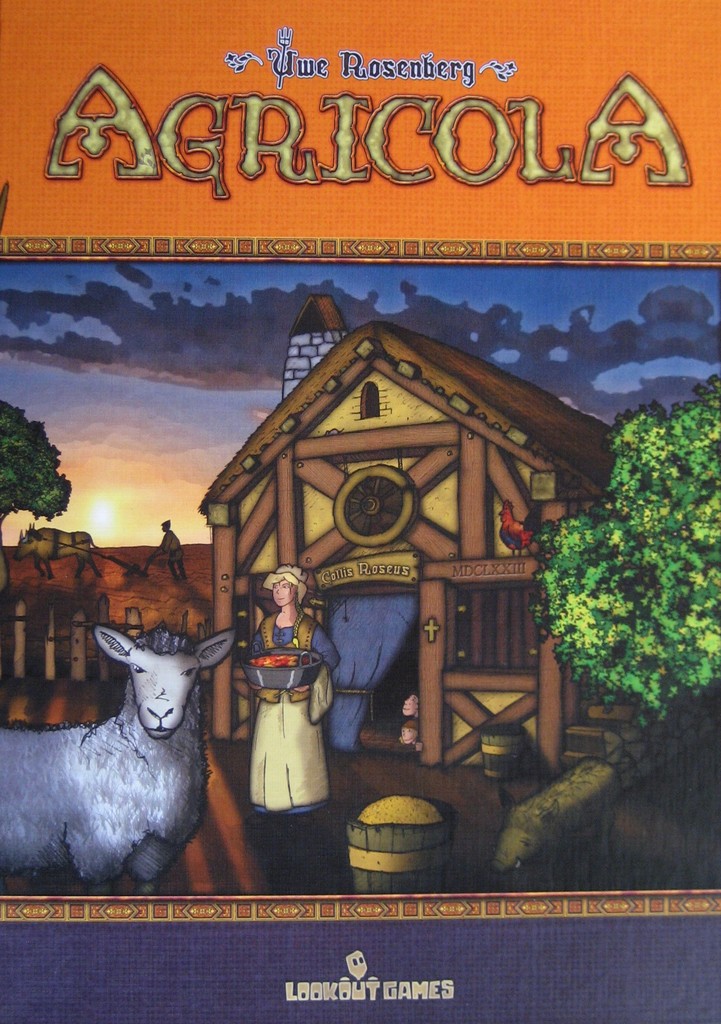
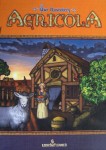

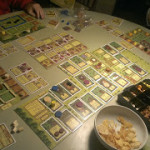
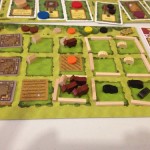
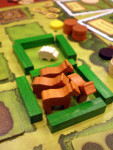


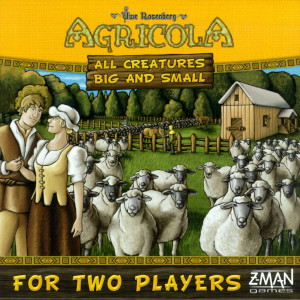
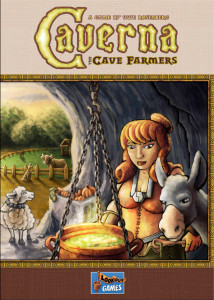
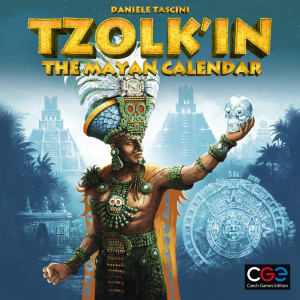
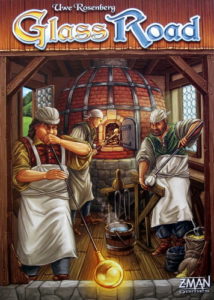
Sam says
Agricola is highly rated for many good reasons - if you're happy with a theme that doesn't involve space exploration, sword fights, or similar, then it's very well designed and is such an intuitive game: the actions all make sense. The game scales in complexity from simple (no cards at all) to complex (both decks). And although each player is developing their own farm, the opportunity to mess with each others' plans is there on the main board, if you choose to get into blocking people. At heart the game is just about expansion; managing resources to make things happen. I've taught it to children under ten and with a bit of guidance they just get it because it's not at all abstract. All that said, if you want something that feels less fire-fight-y (in Agricola feeding your family is a constant battle) then I'd go instead for the designer's next game, Caverna.